Table of Contents
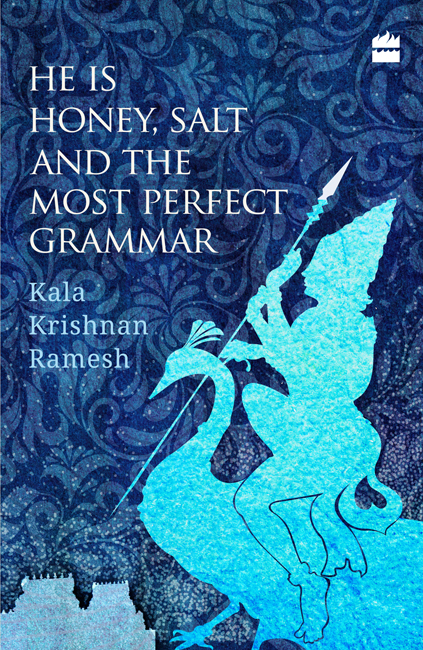
He Is Honey, Salt
and the Most Perfect
Grammar KALA KRISHNAN RAMESH

HarperCollins
Publishers India for
my mother & father, who taught me to read
&
for the god who lives in these poems
without whom I would not be a poet CONTENTS T he god who lives in
He Is Honey, Salt and the Most Perfect Grammar is known by many names: as Guha he is the one who homes in the heart-cave; as Subrahmanyan he is easy with knowledge of the Absolute; as Singaravelan hes the dandy whose weapon is the vel, and as Murugan, his most popular name, he is beautiful and valorous. Murugan is son to Parvati and Shiva and brother to Ganesha, who plays a big role in his younger siblings fate. Each of the names Murugan is known by resounds with notes from his adventure-filled biography and devotees call upon him to bring to their lives the specific qualities that each one holds: austerity, valour, erotic playfulness and so on. In doing this, they are invoking an ancient way of speaking open a doorway between human and non-human through naming; the utterance of the name is one-third of a somewhat-shamanic unit of seeingnamingbecoming, a formula that poets have often used to arm themselves through the bewitched geographies of poetry. The god also has other names and these he makes up on the spur of the moment, in response to being asked to name himself, to provide an answer to that most persistent human question: Who are you? The curious thing is that the person asking this question is usually a poet, and, if you know Murugan, youll know that he would have just tricked, shocked, unsettled or bested that poet in a duel by word. Only in retrospect will the poets recognize that these encounters were designed by the god to draft, revise and enliven their current work as well as their writing process.
For the god, this naming is a game, a carefully wrought sleight-of-word that celebrates language and his delight in articulation. Those unwittingly partnered with him in this game and those who hear tell of it will certainly be overawed by the games complexity and finesse, but there is also an inherent playfulness to the whole thing, which is reassuring and a sign of the gods endless patience with, and affection for, his poets. Murugan seems to invest himself in his poets work, intervening frequently, consistently, and apparently with a sense of the individual poets creative process and the evolving manuscript. In one such encounter, Murugan accosts Auvaiyyar one of the most celebrated poets of Tamil guised as a cattle-herding boy, with the express intention of showing her how the sense of accomplishment that had thickened in her was now clogging her hearing. Naturally, she fails to catch his word play and shocked at being shown up by an unlettered little boy, she asks, Who are you? for the second time, now sure that his first answer to the question Im just the boy who grazes sheep and cattle was meant to mislead her. In this tale, were already aware of who it is and were also aware that the poet failed her test for she didnt catch the sound of her gods voice under the disguise.
Then the god reveals himself and she asks, It is you? This vignette appears in the popular Tamil mythological Kandhan Karunai; the scene that follows this one, has Murugan typically enough asking the poet to speak/sing. There are many more of these stories; one of my favourites, again from a popular movie, is the one where the god introduces himself as MuttaiEgg to a poet whose arrogance is stopping a potential ferment in his writing. This poet, too, is self-assured, confident that he has what it takes to accomplish the poetic task at hand. In this case, his task is to win his life back by composing an unflawed poem to the god who has appeared disguised as a highwayman. The poet composes instantly, declaims his poem word upon weighty word, and then there is the cataclysmic moment where the apparently unlettered and, in this case, clumsily named young person casually dismantles the poem, revealing at its heart a damning flaw that ought to have been obvious to the poet in the first place. Here too the poet repeats his question: Who are you? The god is revealed and we then see the whole picture, the gods full name.
He is indeed Muttai but thats not all; he is pettai itta muttai, the egg laid by pettai, which in this case does not indicate the more common meaning female bird but the rather rarer usage, hermaphrodite. Thus he is Murugan, the egg laid by the half-woman, half-man Shivas third eye. Thus, the gods identity comes to the poet and to us not only with the crash-bang of revelation but also with the delight of a word puzzle solved. This encounter too leads to scintillating verse from the poet whose skill is smoother after that overhaul by the god. And the poet, who has earlier refused to sing of the god, dismissing him in many mocking words, now calls him kavitai inbame, poetrys sweetness, and many more adoring names. I love these stories of Murugans dealings with poets, because they show him as someone so keen on good writing that he goes to the trouble of plotting action sequences that will shock his poets away from dead-end word-blocks to find new, sometimes as-yet-unformed, poetry paths.
The Tamils conceived of Murugan in these aspects, clearly, when they described him as the one in charge of iyalisainatakam (literaturemusicdrama) and also had him presiding over one or more of the great sangams or academies fabled to have existed and worked from a time so ancient that they belong in poetrys timeless continent. The god sometimes also creates situations in the material world, which will change the soil within, when he finds that a poets interior is unprepared for the work of an impending poem. The poet Nakkeeran believed by some to be the author of the Tirumurugatrupadai it is said, once found himself in the course of a normal days routines, captured and imprisoned, as the final man to complete the 1,000 required for a human sacrifice. It is said that he composed the poem, terror-stricken, with death in front of him. Of course, Murugan came and saved him and the 999 others, and of course, he was pleased with the work. Would the work have been composed had this not occurred? For without the event impelling him there, would the poet have ventured into those areas of his imagination that he did, to gather the conceptual and verbal material necessary to build that poem? All these stories that feed my poetry and move its words, are in Tamil.
Over the years Ive come to understand that, though born to Malayali parents, and despite being able to speak and read Malayalam, with this language, I feel as if I am stranded in a strange place, without speech, whereas the gestures of Tamil make me feel at home, though Im not deaf to its excesses. Perhaps it was all the Tamil films my father took me to when I was a child that made the larger-than-life gestures, the spectacular metaphors of that language seem natural, perhaps its just my poetic fate who knows? Tamil feels like the mother tongue I was born with (and English the one that I earned). So, when I needed extrication from an unyielding writing-life freeze, it seemed right that rescue came armed with Tamil, in the form of an uncanny musical encounter. This made me write again, to turn back to He Is Honey, Salt and the Most Perfect Grammar, to complete the few remaining unfinished poems and to make the many crucial revisions that had dead-ended me till then. It also made me see the sense in some poetic choices made instinctively in these poems, which I hadnt been able to until then. The most interesting of these is an explanation for the shapes that some of these poems are wearing.



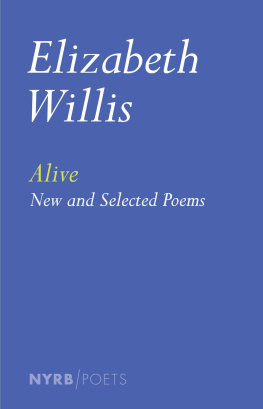
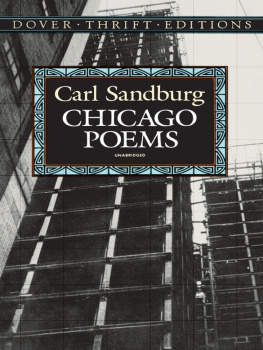
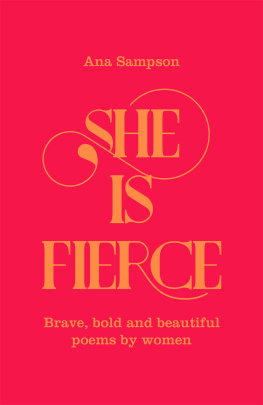
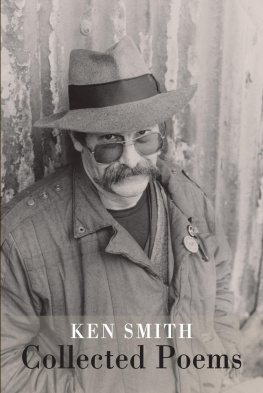

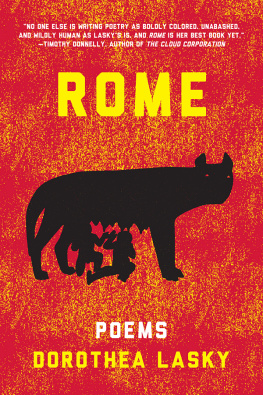
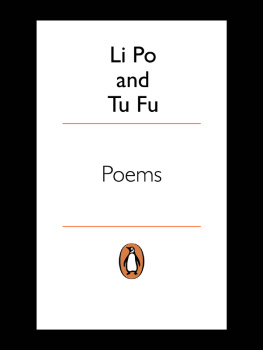
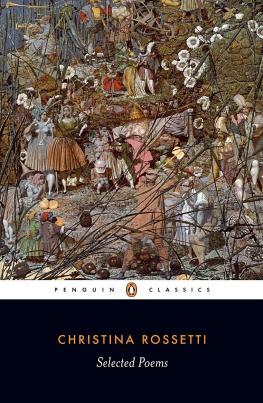

 He Is Honey, Salt
He Is Honey, Salt HarperCollins Publishers India for
HarperCollins Publishers India for